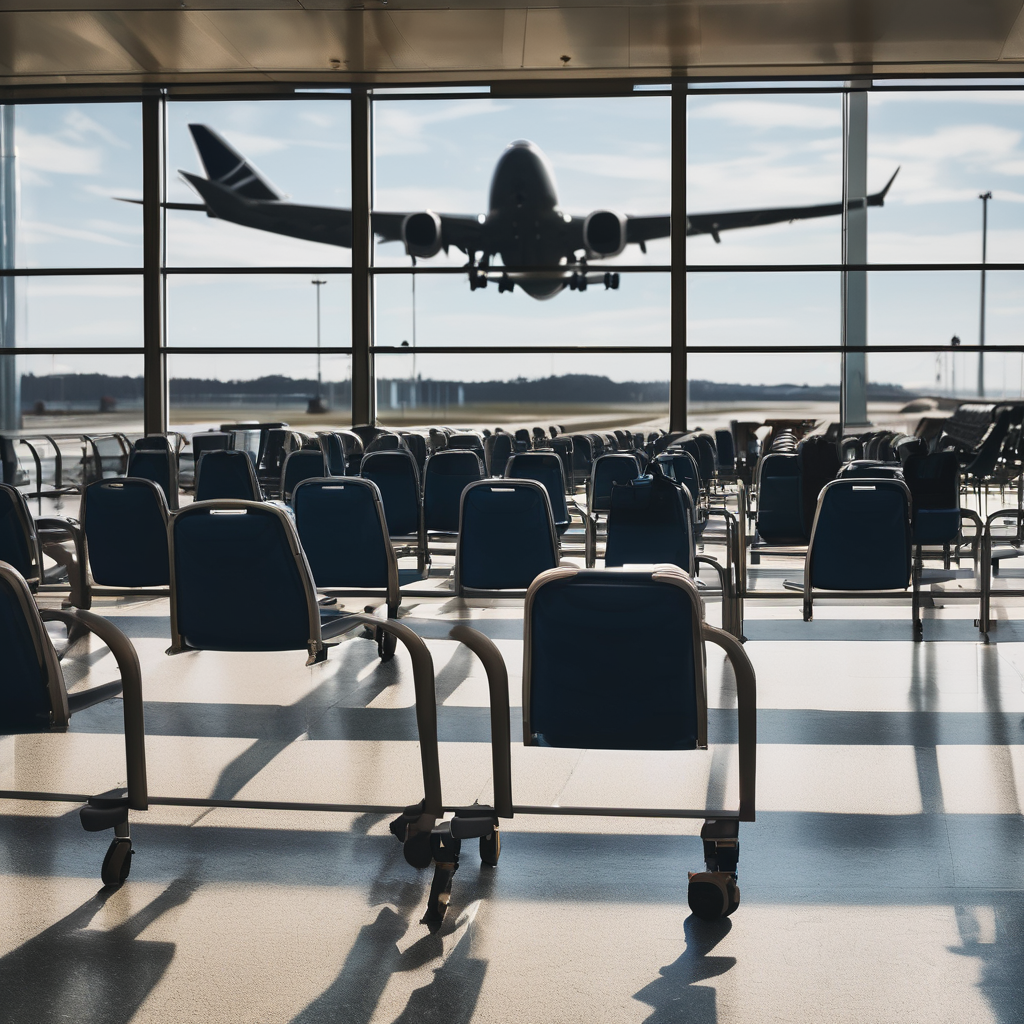The U.S. Transportation Department has issued a warning that if government funding is not secured by midnight, more than 11,000 employees at the Federal Aviation Administration (FAA) could face furlough. This represents nearly a quarter of the FAA’s workforce, prompting concerns throughout the American aviation industry. Airlines worry that such a scenario could complicate operations and cause delays, as critical staff like air traffic controllers and security officers would have to work without receiving pay.
Despite the potential shutdown, essential services are anticipated to persist, with over 13,000 air traffic controllers continuing their vital duties unpaid to maintain aviation safety. The FAA, dealing with a shortage of 3,800 controllers, indicated that hiring and training will carry on even in the event of a funding shortfall—contrasting the halt seen in previous shutdowns.
In parallel, approximately 50,000 Transportation Security Administration (TSA) employees responsible for ensuring airport security are also expected to fulfill their roles without pay. During the major 35-day shutdown in 2019, staff absences increased, leading to longer wait times at security checks in major airports such as those in New York, prompting swift legislative action for resolution.
Representatives of the airline industry, including Airlines for America, which comprises major carriers like United, Delta, American, and Southwest, have expressed concerns that a lapse in funding could affect system efficiency and impact travelers. The U.S. Travel Association has estimated potential losses to the travel sector of about $1 billion weekly if the shutdown occurs.
Despite the looming threat, the FAA plans to continue with certification activities to guarantee commercial airplane and engine safety, as well as to supervise commercial space launches, highlighting the organization’s efforts to maintain crucial operations.
This tense situation underscores the broader impact of political gridlock on vital infrastructure and services. The potential economic consequences and operational challenges illustrate the necessity for prompt governmental action to avoid disruptions impacting both the national economy and public convenience. Meanwhile, the unwavering commitment of workers maintaining essential services without pay highlights their dedication and professionalism in the face of adversity.
